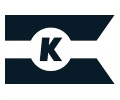

Although seaborne transportation remains the most energy efficient way to transport bulk commodities – the fact remains that for the world to decarbonize, shipping needs to decarbonize. This year’s summer intern program at Klaveness sees shipping’s next generation of talent join us for 6 weeks to contribute at KSM and KCC on applying data and analytics to sustainability initiatives. They share their outlook on the future of shipping as greener, safer, but dependent on the industry’s new generation to help it get there.
The Talent
This year our team welcomes My Tam Lam and Nils Kristian Toreskaas onboard. My joins Klaveness Ship Management (KSM), while Nils lends his summer to Klaveness Combination Carriers KCC).
As an MSc student in applied Physics and Mathematics, My explains she is a curious person by nature and has a burning interest in how to take advantage of technology to create smart solutions. She argues, “being the best means adapting to a changing society and new technologies, always looking for ways to become even better,” she adds Klaveness’ passion for utilizing technology to make shipping safer and more environmentally friendly was foundational to her choice this summer.
Nils is currently undertaking his MSc in Financial Economics with a sub-specialization in Energy, Natural Resources and the Environment; he comments that sustainability is his passion and argues, “our generation of students is essential in the battle against global warming, a substantial amount of us will devote our careers to battling this crisis.”
Nils adds that Klaveness’ commitments on this front stoked his interest, and made it the right choice for him to seize the best opportunity for taking part in exploring the rapidly developing shipping industry.
Their Mission
My’s 6-week mission will be to support KSM on a project that entails digitalization of ship management. The project aims to make ship management safer and greener by being data smart, My explains, “a method for doing so is take advantage of the data accessible and use these to create great solutions; it then becomes easier to see where we are performing well and where there is room for improvement.”
In particular, My will explore heat and energy management, where the goal is to create an overview of when, and how much, Klaveness vessels use auxiliary engines and boilers, “the aim is to map when and where there are possibilities for a reduction in use, this will spare the environment a redundant use of fuel,” she adds.
At KCC, Nils will be involved in two projects. He will first apply his skills to data and analytics and utilize AIS data to develop an environmental benchmark, “this benchmark will be used in both business development and reporting, and could be employed as a baseline for planning future CO2 emission cuts in future ‘sustainability linked contracts’ in affreightments with KCC’s customers ,” he explains.
The second project will see Nils employ his skills to a research project focused on the lithium refinery industry in Western Australia. Nils explains he will gather information on current projects and populate realistic scenarios for the growth in lithium production and caustic soda consumption and imports to Australia before presenting his findings to KCC.
The Future of Shipping
Asked where they see the future of shipping, My comments, “shipping is a very old industry that still play a vital role in the world today; it will continue to do so – only greener and safer.” My adds that technology and the focus on being data smart will become even more important, and her ambition to help make that happen is to apply her data visualization skills to help the industry come up with smart solutions for improvement.
Ask Nils the same question and he believes we will see rapid change, he comments, “more and more shipowners and industries are acknowledging their corporate social responsibility when it comes to the environment. I believe we will see substantial changes in the status quo and where old opportunities vanish – new ones will arise.” Nils adds that his goal is to take part in identifying and exploiting such opportunities in the transition towards greener shipping and concludes, “the scope, scale, and time span of the sustainability transition in shipping will depend on its new generation of talent.”
Source: Klaveness